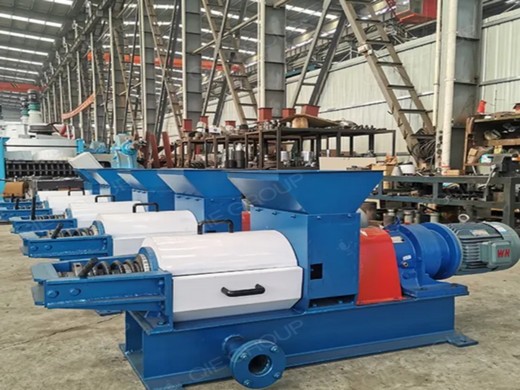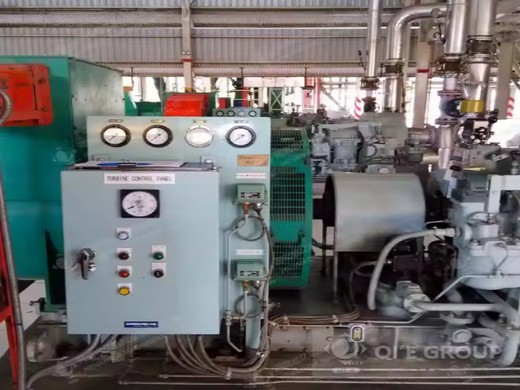Environmental Management Guideline for the Palm Oil
CHAPTER 3 PALM OIL INDUSTRY OF THAILAND The oil palm plantation and the palm oil industry in Thailand is comparatively young. In 1979 oil palm plantation area was 155,000 rai (2.5 rai = 1 acre) and increased to 950,000 rai in 1993 with the production yield of 1,530,000 ton of fresh fruit bunches (FFB), valued at about 2,600 million Baht.
Thailand Crude Palm Oil, Thailand Crude Palm Oil Suppliers and Manufacturers Directory Source a Large Selection of Crude Palm Oil Products at palm oil,plant animal oil,sunflower oil from Thailand
INDUSTRIAL ECOSYSTEMS IN THE CRUDE PALM OIL
The result from survey of 5 crude palm oil factories showed that electricity is the dominant source of energy for production process. Total energy consumption of all electric machines used in the production process is average 14.46 kWh/ton FFB. Palm oil mills in Thailand operate on cogeneration system using biomass residue as fuel in the boiler.
Sustainable Palm oil production in Thailand Exploring environmentally and socially sustainable pathways for palm oil production in Thailand Marije Willems 910521-957-020 04/05/2025 MSc Thesis Environmental policy group Supervisor: Peter Oosterveer
Palm Oil Production Machine, Palm Oil Production
Our company offers 11,882 palm oil production machine products. About 80% of these are oil pressers, 1% are filling machines, and 1% are dairy processing machines. A wide variety of palm oil production machine options are available to you, such as free samples, paid samples.
Options to reduce environmental impacts of palm oil production in Thailand Article in Journal of Cleaner Production 137 · July 2025 with 239 Reads How we measure 'reads'
1. Oil palm development in Thailand: economic, social
National trends of oil palm development in Thailand Currently, fourteen bio-diesel plants, twelve oil palm refineries and more than sixty oil palm crushing mills are in operation in Thailand. In 2010 production of crude palm oil CPO reached 1,287,509 t of which 65,942 t was exported. Exports made up 5.1% of total production in 2010.
Following a 3-year project by Shell Thailand and Patum Vegetable Oil Ltd, 797 smallholders and five palm oil mills from 4 provinces in the South of Thailand were certified. The support was in the form of training services on best management practices such as seed selection, fertiliser application, proper health, safety and environment practices.
Palm Kernel Shell Charcoal Machine Price Uses
Beston palm kernel shell charcoal machine can not only process palm shell, but also can process sewage sludge, MSW, and other kinds of biomass materials, such as peanut shell, olive shell, coconut shell, rice hull, wood, sawdust, bamboo, etc.This is the so-called one machine with multiple use. If you want to buy carbonization machines, Beston is the best choice for you no matter in product or
Palm oil is a versatile product with a variety of uses and Asian Agri believes it must be produced sustainably based on economic, social and environmental viability. Of its 160,000 hectares of palm oil plantations, 60,000 are developed under the Plasma scheme, a national level project supporting smallholders. Asian Agri partners with more than
- Does Thailand produce oil palm?
- As similar to many countries around the world, Thailand has significantly increased its oil palm production for the last couple of years. The majority of Thai oil palm production comes from over 120,000 smallholders throughout the country.
- What is a smallholder palm oil producer in Thailand?
- Smallholders are the backbone of Thailand’s palm oil industry, accounting for about 85% of production. In Thailand, smallholders are defined as growers with less than 50 hectares (312.5 rai) of land. Thailand was the first country to establish four RSPO Certified independent smallholder groups in 2012.
- How sustainable is Thailand's palm oil production?
- Thailand’s sustainable palm oil production has demonstrated extraordinary growth of more than 200%, expanding from 348,027 tonnes in 2019 to 1,112,048 tonnes in 2024. This surge is centred in key southern provinces, including Surat Thani, Krabi, Chumphon, Nakhon Si Thammarat, and Phangnga.
- Who is involved in palm oil production in Thailand?
- Examples of formal institutions that are involved in palm oil production in Thailand are governmental bodies and its laws and policies on local, national and global level, the RSPO, NGOs, corporations, producers and processors.
- Why are smallholders limiting palm oil production in Thailand?
- With these constraints, smallholders in Thailand produce low yields, resulting in a low quality of palm oil being extracted in the mills. As a consequence of smallholders’ constraints, only around 2% of Thailand’s entire palm oil output is produced by Roundtable on Sustainable Palm Oil (RSPO)-certified smallholders and palm oil mills.
- Which multinational companies are committed to sustainable palm oil production?
- In line with the global demand on sustainable palm oil, the big multi-national companies such as Nestlé, Cargill, McDonald’s, Unilever and Shell Global etc. have put their commitment towards sustainable palm oil production.






